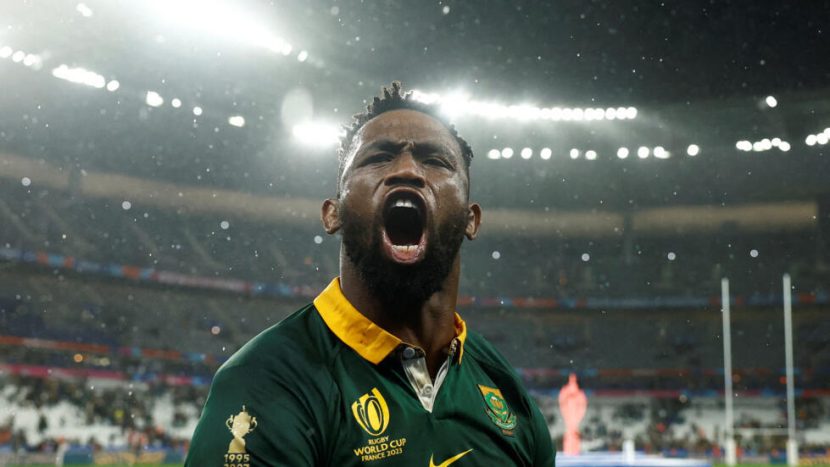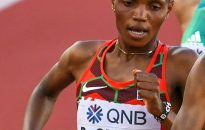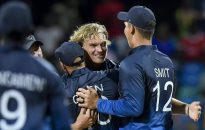ADRIAN DENNIS/AFP VIA GETTY IMAGESOfficially Munster’s press officer, Pat’s role went much deeper than that — counsellor, confessor, friend and fixer. The Munster players loved him. And now I loved Pat, too. At very short notice he organised an interview with Paul O’Connell.But when I filed the story, some faceless, friendless sub-editor in London came […]
ADRIAN DENNIS/AFP VIA GETTY IMAGESOfficially Munster’s press officer, Pat’s role went much deeper than that — counsellor, confessor, friend and fixer. The Munster players loved him. And now I loved Pat, too. At very short notice he organised an interview with Paul O’Connell.But when I filed the story, some faceless, friendless sub-editor in London came up with a hideous headline and spread it across two pages: “Corrigan: Thanks for nothing, Clive.”

The Munster team of the mid-2000s provided the backbone of the Ireland side and plenty of stories for the mediaAnd what a godsend Munster were for the media. They gave us so many gigs in the south of France for starters, but also provided us with so much human interest, so much colour, such a prolonged tale of injustice before they finally conquered Europe in 2006, with so many heroes and a few villains, too: Steve Lander, the touch judge responsible for denying John O’Neill a match-winning try in Lille; the Cardiff pickpocket Neil Back and many others.
Advertisement
DAVID DAVIES/PAIreland’s Six Nations title win in 2009 was the country’s first under the new format – they have won five further titles sinceExcept now I’m walking into my first editorial conference and D’Arcy is dodging my texts. I soon discovered why: Reggie Corrigan, the Leinster captain, had declared me persona non grata.One measure of Ireland’s progress in the previous few years was that 11 of Eddie O’Sullivan’s team would make the Lions tour in 2005, roughly twice the number who’d travelled in 2001. And happily The Sunday Times would be sending me, too, even though the paper was already well represented. At one point there were as many as six of us on tour. That was twice the number of Scottish players there.

ODD ANDERSEN/AFP/GETTY IMAGES
Advertisement
Reggie had every right to be furious. He was the victim here. What if Woodward had seen that headline? But on that first morning in a new job, I had a more pressing issue. I needed an idea and fast. The late Pat Geraghty was my saviour.Come to think of it, one of the jobs I was given was to find a travelling Scottish fan and interview him. I tracked one down in a bar but he declined my request, and not very politely.Ireland had ambition in 2005 but nothing to show for it beyond that Triple Crown. At the time Munster seemed like the bigger rugby brand, certainly outside the Six Nations bubble. Given how far they’ve slipped in the past ten to 15 years it’s worth recalling that Munster were the prime movers in what we now think of as Irish rugby’s success story. Before they finally dragged a response from Leinster — and what a response — they popularised rugby in this country. They democratised the sport, drew in the casual sports fan with the assurance that this wasn’t purely an elitist game after all.Leinster have stamped their mark as the dominant force in Irish rugby but having so many international players at one club could be a concern for the IRFU

In fairness, Reggie had reason to be angry. The previous week he’d kindly taken a call for a piece in another newspaper. During our conversation he revealed that, unlike many of his team-mates, he hadn’t received a Christmas card from Clive Woodward, the incoming British & Irish Lions coach, as an indication that he was in the mix for selection to tour New Zealand the following summer.
Advertisement
I’d had such great plans. A few weeks earlier I’d lined up Gordon D’Arcy for an interview. We were a month out from the Six Nations and he’d been the star of the previous year’s tournament. I’d be starting the new gig with a bang.P.S. Reggie Corrigan forgave me, eventually. Legend.Being successful doesn’t make things much easier for the IRFU, for example; maintaining a place at rugby’s top table is just as difficult as getting there in the first place. Part of Andy Farrell’s success as the national coach has been the cohesion you get from having one ultra-dominant province, yet the dangers in such a situation must already be abundantly obvious to David Humphreys, the IRFU’s performance director. The kinks in the production line are evidenced by the bizarre imbalance of having five Irish-qualified fly halves at Leinster while Kiwi journeymen are getting regular and valuable game time at Ulster and Connacht.

A surprise interview with O’Connell, left, was a major coup in the lead-up to the Lions tourLooking back, I realise how fortunate I was to join a major newspaper just as Irish rugby was embarking on a period of remarkable growth. O’Connell embodied a new sense of self-respect and expectation. The previous year I’d spoken with him for a book about Ireland winning the Triple Crown and I could see he was uncomfortable with the idea of anyone celebrating a Triple Crown. O’Connell was only interested in big prizes, like grand slams, Heineken Cups, even World Cups.
Advertisement
What a relief. O’Connell was big news, a dead cert to tour New Zealand with the Lions that following summer. Still only 25, he was seen as a natural successor to Martin Johnson. Alex Butler, the sports editor in London, was delighted. The interview ran to 3,000 words. None of that was going to wash with my venerable colleague, Stephen Jones, who was working in the seat next to me. At this pivotal moment in Irish rugby history Steve clutched me by the arm and restored me to my seat with the calm instruction to “sit down”. Killjoy? No, in fairness, he was just protecting me. The one thing you don’t want to be called in this game is a “fan with a typewriter”. And that’s what I looked like that day in Cardiff.

Corrigan, right, played 47 games for Ireland between 1997 and 2006But this seems a minor matter when you consider the question marks over professional rugby’s long-term sustainability. The IRFU is something of an outlier when it comes to managing its business affairs. It can afford to charge €160 for a seat at Six Nations games in the Aviva, safe in the knowledge that the games will sell out. It has no debt, and owns significant cash reserves and net assets. And yet like so many cash-strapped and struggling unions it depends on the sport finding a way to sell itself better while at the same time reducing the physical stresses that it imposes on its players. Rugby is crying out for clarity and unity, and Ireland’s influence is greater than ever before.Was Reggie upset? Not outwardly. The card may still be in the post, he reasoned. It might not come at all. Either way, he’d survive.















